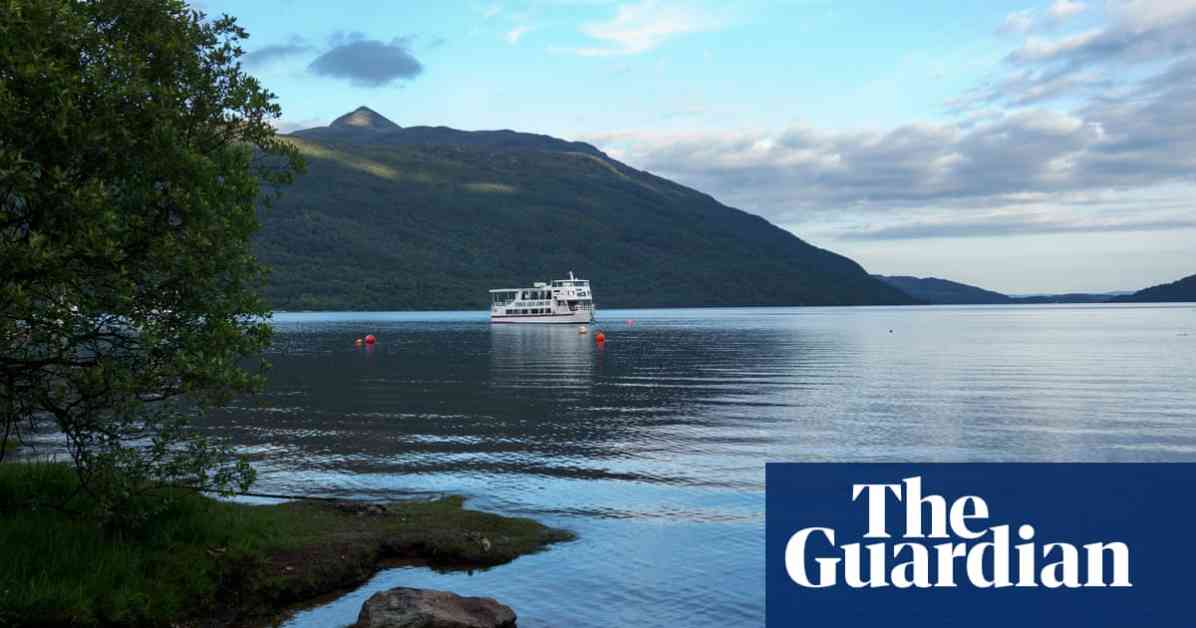Loch Lomond Flamingo Land Development Rejected Amid Public Backlash
Proposals by the theme park operator Flamingo Land to build a mega-resort on one of Scotland’s best-loved shorelines, on Loch Lomond, have been rejected, prompting celebrations among local people at the conclusion of a “David and Goliath” planning battle.
The Lomond Banks development, which would have included two hotels, more than 100 lodges, a waterpark, and a monorail, had encountered fierce opposition, first from the village of Balloch, on the southwest shore of the loch, and then across Scotland, since it was first proposed in 2018.
The Loch Lomond and Trossachs National Park Authority board announced its decision on the proposal on Monday evening after a packed public hearing at the parish church, a venue chosen to accommodate as many local people as possible.
Representatives of Lomond Banks had said the development would result in significant economic investment for the area and generate up to 200 jobs. But the board unanimously rejected the scheme after what it described as a “thorough, robust, and transparent” process, citing concerns about flood risk, the loss of areas of ancient woodland, and conflict with the national park’s primary aim of conservation.
Ross Greer, the local Scottish Green MSP who has galvanized community objections, said he was delighted with the decision. “This is a huge victory for my Balloch constituents and for our long-running campaign to save Loch Lomond,” he said. “Residents have been united against this daft plan from the start, stepping up to defend one of Scotland’s iconic landscapes. After almost a decade, this is the result the community and campaigners deserve.”
During the five-hour hearing, the Scottish Labour deputy leader, Jackie Baillie, whose West Dunbartonshire constituency includes Balloch, told the board she was “not convinced the economic benefit outweighs environmental impact,” while Lynne Somerville, of Balloch community council warned: “We must not sacrifice the very essence of Loch Lomond.”
The company behind the proposals, which also runs the Flamingo Land theme park and zoo in Yorkshire, first submitted the plans in 2018. After immediate local opposition and an online petition that garnered more than 55,000 signatures, it withdrew the initial plans, but in 2020, it returned with an updated £40m proposal.
Greer said: “The single biggest issue people had was the sheer scale of the development. Local residents are already struggling with visitor numbers, and there was acute concern from local independent businesses that they would be displaced.”
The Scottish Greens helped locals navigate the “daunting” planning process and drafted standard objections for them to personalize, with more than 150,000 people objecting to the latest proposal, believed to be the largest number of planning objections ever.
Greer added: “What has been essential to this campaign is being able to turn it into a national issue, and local people took so much strength from organizations like the Woodland Trust, the National Trust, the Ramblers Association coming out in support of them.”
There was anger in April when West Dunbartonshire council did not oppose the development, but later the park authority recommended against approval.
Greer said: “This has been one of those classic David and Goliath battles from the start, with the small community of Balloch up against this very well-funded developer who stretched out the process for a decade.”
Local Celebration and Opposition
The rejection of the Lomond Banks development by the Loch Lomond and Trossachs National Park Authority has been met with jubilation by local residents and environmental activists who have been vehemently opposed to the project since its inception. The proposed mega-resort, which would have drastically altered the picturesque shoreline of Loch Lomond, was seen as a threat to the natural beauty and ecological integrity of the area.
Residents of Balloch, the village closest to the proposed development site, were particularly vocal in their opposition, citing concerns about increased traffic, pollution, and the loss of precious woodland. The community’s united front against the project, supported by organizations like the Woodland Trust and the National Trust, played a crucial role in the ultimate decision to reject the plans.
Economic Impact vs. Environmental Concerns
While the developers of the Lomond Banks project touted the economic benefits of the proposed resort, including job creation and increased tourism revenue, local residents and environmentalists were quick to point out the potential negative impacts on the fragile ecosystem of Loch Lomond. The concerns raised about flood risk, loss of ancient woodland, and disruption to the park’s conservation efforts ultimately swayed the National Park Authority to reject the proposal.
Scottish Green MSP Ross Greer, who has been a vocal opponent of the development, emphasized the importance of prioritizing environmental conservation over short-term economic gains. The decision to protect Loch Lomond from large-scale commercial development reflects a growing awareness of the need to safeguard Scotland’s natural landscapes for future generations.
Lessons Learned and Future Challenges
The defeat of the Lomond Banks project serves as a testament to the power of grassroots activism and community engagement in shaping local decision-making processes. The overwhelming public opposition to the development, as evidenced by the record number of planning objections, highlights the importance of preserving Scotland’s natural heritage in the face of commercial interests.
Moving forward, it is essential for policymakers, developers, and environmental advocates to work together to find sustainable solutions that balance economic development with ecological conservation. The rejection of the Flamingo Land resort on Loch Lomond sends a clear message that the protection of Scotland’s iconic landscapes must take precedence over profit-driven projects that threaten the environment.
In conclusion, the defeat of the Lomond Banks development represents a significant victory for environmental conservation and community activism in Scotland. By standing up against powerful corporate interests and advocating for the preservation of Loch Lomond, local residents have demonstrated the importance of protecting our natural heritage for future generations.












